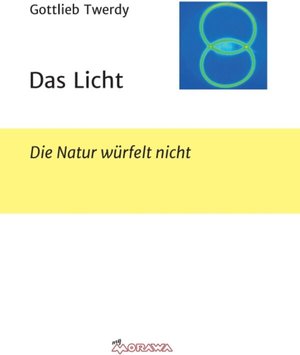
Das Licht
Die Natur würfelt nicht
von Gottlieb TwerdyDas Licht vernimmt Albert Einsteins Ordnungsruf an die Physik „Gott würfelt nicht!“ und beschließt, Licht in das Dunkel der statistischen Methoden zu bringen.
Wir erkunden einige Abenteuer des Lichts, unter anderem ein berühmtes Experiment. Mit ihm hat Gregor Weihs 1998 bewiesen, dass allein die Quantenphysik richtige Prognosen liefern kann, nicht auch die klassische Physik, die Wahrscheinlichkeiten als Gesetzesvorlage ablehnt. Entgegen der Erwartung Einsteins gibt es im Himmel keine „verborgenen Parameter“, keine Rettungsringe für die seither hilflos ertrinkende Vorstellung, dass jede Wirkung eine verständliche Ursache haben sollte.
Unterwegs wird uns das Licht geduldig erklären, was eigentlich geschieht, und dass alles ganz kausal und real zugleich erfolgt. Die begehrten, noch immer umkämpften Parameter haben sich nämlich so verborgen, dass sie vorsorglich in der Substanz untergetaucht sind, schon bevor der Himmel gnadenlos leer gefegt wurde. Wovon? Von allem, was nicht zählt.
This work analyses the experiment of Gregor Weihs et al. in 1998, recognized as a proof that local hidden parameters can not correlate the polarization of entangled photons. A both realistic and causal explanation is suggested, how light is working. The missing parameters are hiding in the substance itself. The work of a substance consists in the exchange of content and thus generates movement. New content becomes absorbed and old content gets emitted, making a substance both stable and progressive as well. The emitted parts of all substances are called radiation and fill the distances between all actual sources and later absorbers. This way a dark habitat of light comes to existence, namely the ocean of photons. It is not a relic of some big bang, but the vivid product of all working substances.
Light is neither a beam of particles nor of waves, but the way, how the work of the ocean of photons is spreading. The speed of light is a speed of work. To see is to take over work.







